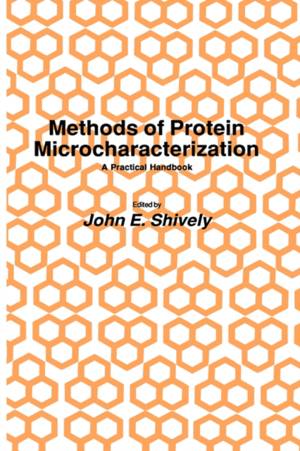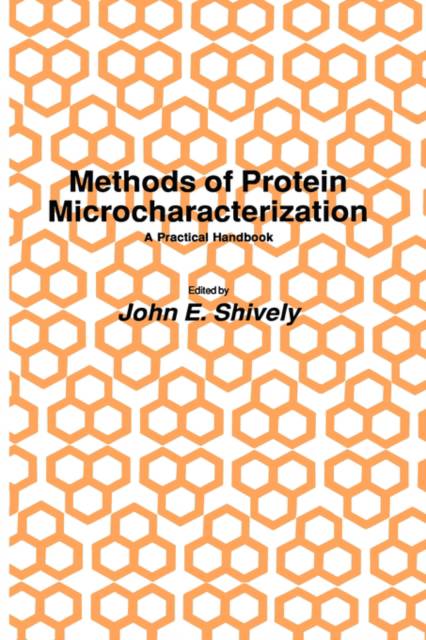
- Afhalen na 1 uur in een winkel met voorraad
- Gratis thuislevering in België vanaf € 30
- Ruim aanbod met 7 miljoen producten
- Afhalen na 1 uur in een winkel met voorraad
- Gratis thuislevering in België vanaf € 30
- Ruim aanbod met 7 miljoen producten
Zoeken
€ 181,95
+ 363 punten
Uitvoering
Omschrijving
Milestones in the techniques and methodology of polypeptide structure determination include the determination of the sequence of insulin by Sanger in 1951 (I) and the introduction of the repeti- tive degradation of proteins with phenylisothiocyanate by Edman in 1959 (2). The automation of Edman chemistry (3) played a major role in the determination of polypeptide structures. Important modifications of Edman chemistry include the solid-phase approach by Laursen in 1971 (4) and the use of modified Edman reagents such as 4-N, N-dimethylaminoazobenzene-4'-isothiocy- ate (DABITC) for manual sequencing by Chang et al. (5) in 1976. A second major breakthrough in the analysis of polypeptides was automated amino acid analysis described by Spackman et al. in 1958 (6). However, during the period from 1975 to 1980, it became increasingly clear that the amount of material required for struc- tural analysis was more than could be easily isolated for the vast majority of proteins. The field was criticized for its lack of sensitive techniques for the analysis of growth factors, immune modulators, membrane receptors, and peptide hormones. In addition, very little had been done to modernize and improve the original instruments introduced in the mid-1960s. The first indications of improved instrumentation for Edman chemistry came from Wittmann-Liebold's laboratory (7), followed by the introduction of a "micro" sequencer by Hunkapiller and Hood in 1978 (8). The movement toward improved instrumentation culminated in the "gas"-phase sequencer of Hewick et al. (9) in 1981.
Specificaties
Betrokkenen
- Auteur(s):
- Uitgeverij:
Inhoud
- Aantal bladzijden:
- 456
- Taal:
- Engels
- Reeks:
Eigenschappen
- Productcode (EAN):
- 9780896030909
- Verschijningsdatum:
- 8/07/1986
- Uitvoering:
- Hardcover
- Formaat:
- Genaaid
- Afmetingen:
- 152 mm x 229 mm
- Gewicht:
- 870 g

Alleen bij Standaard Boekhandel
+ 363 punten op je klantenkaart van Standaard Boekhandel
Beoordelingen
We publiceren alleen reviews die voldoen aan de voorwaarden voor reviews. Bekijk onze voorwaarden voor reviews.











